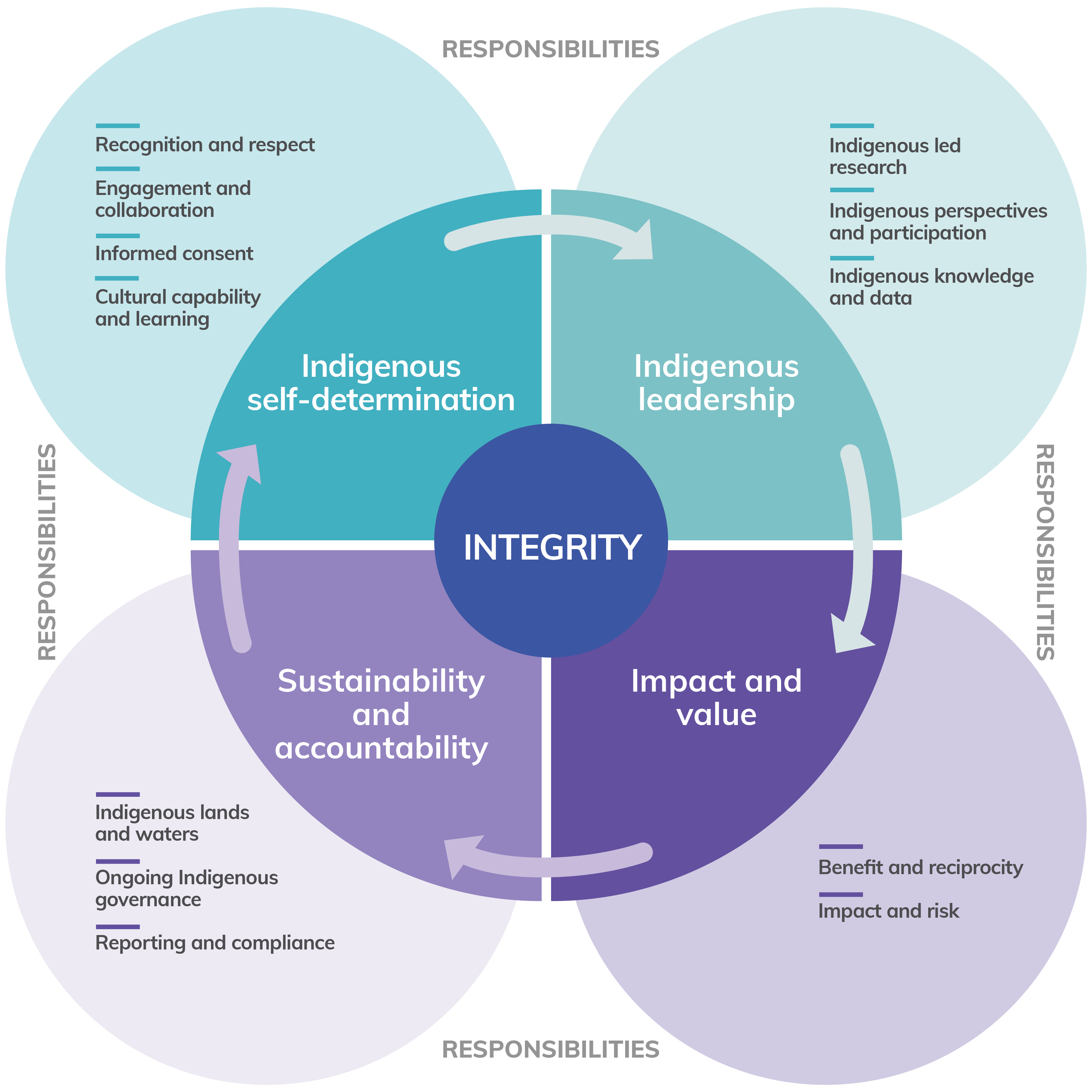Core: Ethics for Aboriginal and Torres Strait Islander Research has been developed by AIATSIS in partnership with the University of Sydney and The University of Queensland. It builds on over 20 years of experience that AIATSIS has in providing national leadership in setting ethical standards in Aboriginal and Torres Strait Islander research.

A comprehensive e-learning module featuring nine units of engaging, self-paced content.
- The module facilitates learners’ understanding of how to conduct ethical and responsible Aboriginal and Torres Strait Islander research.
- It provides case studies, practical examples, and analysis of common issues in Aboriginal and Torres Strait Islander research.
- The module includes short videos, multiple-choice questions, reflection questions, and in-depth learning activities.
Benefits
Core: Ethics for Aboriginal and Torres Strait Islander Research clearly establishes the importance of ethics in Aboriginal and Torres Strait Islander research. It assists learners in developing their understanding of research ethics governance in Australia and provides them with an in-depth exploration of the AIATSIS Code of Ethics for Aboriginal and Torres Strait Islander Research. The module is also designed to encourage leaners to reflect on their identity and how this impacts their research.
Improve individual and institutional ethical standards in Aboriginal and Torres Strait Islander research. Strengthen individual and institutional cultural competency.
Core: Ethics for Aboriginal and Torres Strait Islander Research is based around the four Principles in the AIATSIS Code of Ethics for Aboriginal and Torres Strait Islander Research.
- Indigenous self-determination
- Indigenous leadership
- Impact and value
- Sustainability and Accountability
Overview of units
-
1 – Introduction
- The introduction to the module defines Aboriginal and Torres Strait Islander research and explores research ethics through the concept of yindyamarra.
-
2 – A brief history of Aboriginal and Torres Strait Islander research
- Unit 2 provides an overview of historical and contemporary issues in Aboriginal and Torres Strait Islander research.
-
3 – Self-reflexivity in Aboriginal and Torres Strait Islander research
- Unit 3 explores self-reflexivity an the role of the university knowledge production.
-
4 – Australian research governance
- Unit 4 presents an overview of the Australian Code for the Responsible Conduct of Research, the National Statement on Ethical Conduct in Human Research, and the AIATSIS Code of Ethics for Aboriginal and Torres Strait Islander Research.
-
5 – Principle 1: Indigenous self-determination
- Unit 5 provides an in-depth exploration of Indigenous self-determination, focusing on the issues of community engagement and informed consent.
-
6 – Principle 2: Indigenous leadership
- Unit 6 provides an in-depth exploration of Indigenous leadership, focusing on the issues of co-design and data sovereignty.
-
7 – Principle 3: Impact and value
- Unit 7 provides an in-depth exploration of impact and value, focusing on the issues of benefit and risk.
-
8 – Principle 4: Sustainability and accountability
- Unit 8 provides an in-depth exploration of sustainability and accountability, focusing on the issues of connection to Country and reporting.
-
9 – Conclusion
- The final unit presents a summary of learning.
The module was created by the Australian Institute of Aboriginal and Torres Strait Islander Studies (AIATSIS) in partnership with the University of Sydney and The University of Queensland.

